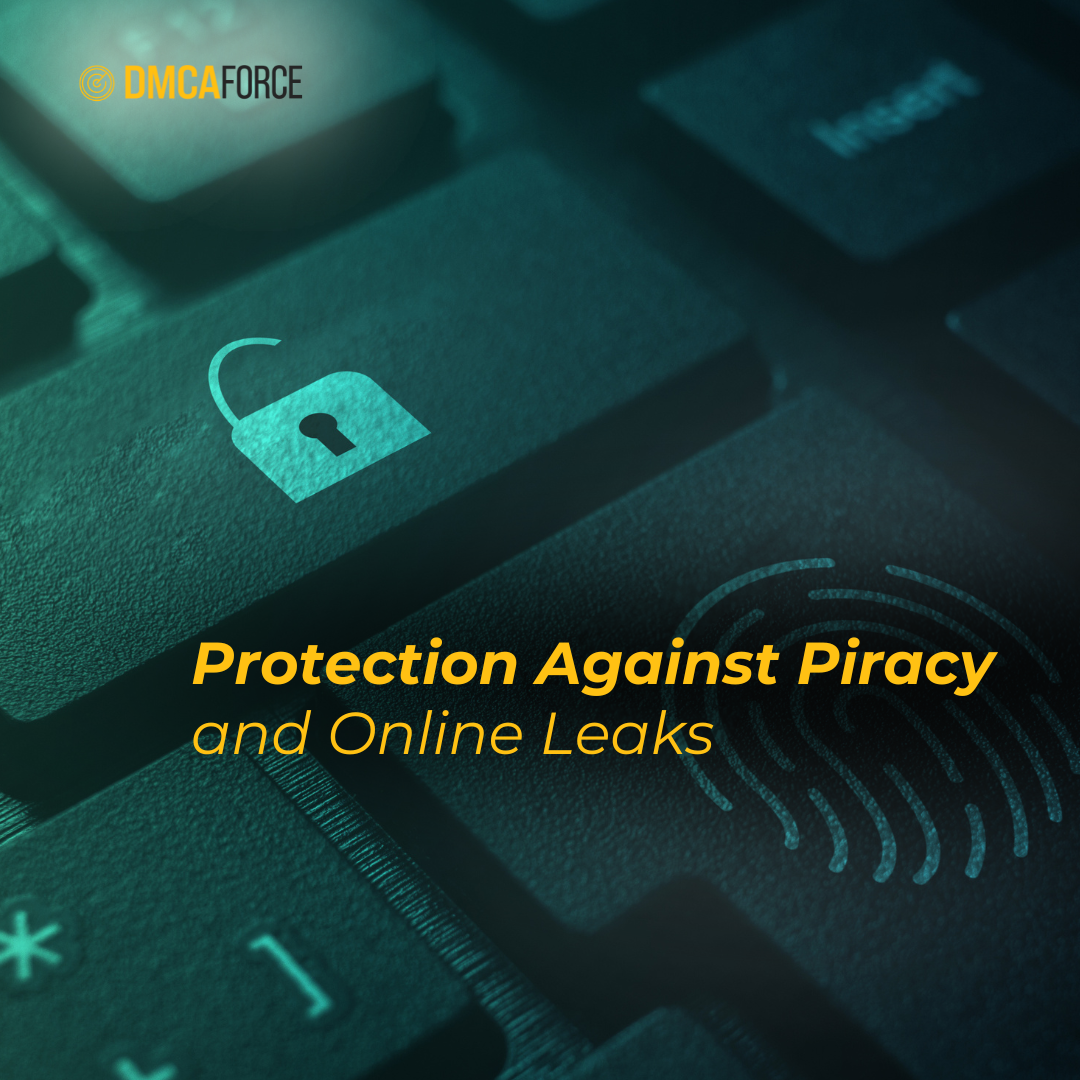News

DIY vs Professional DMCA Takedown Services
When it comes to dealing with copyright infringement online, individuals and businesses have two main options: DIY (do-it-yourself) DMCA takedown services or professional DMCA takedown services. Both approaches have their pros and cons, which are important to consider before making a decision.
A DIY approach involves taking matters into your own hands by identifying infringing content, gathering evidence, and sending DMCA takedown notices to the relevant parties. This approach can be time-consuming and requires a good understanding of the Digital Millennium Copyright Act (DMCA) and its procedures. It also requires a significant amount of effort to track down infringers, draft notices, and follow up on responses. However, this approach can be cost-effective, especially for small-scale infringement cases.
On the other hand, professional DMCA takedown services offer a more comprehensive solution. These services employ experts who specialize in copyright law and have experience in handling DMCA cases. They take care of everything from identifying infringing content to sending notices and following up on responses. This approach is often more efficient and effective, as professionals have the necessary knowledge and resources to handle complex cases quickly and accurately. However, it can be more expensive than the DIY approach.
One major advantage of professional services is that they often have established relationships with online platforms and hosting companies, which can lead to faster removal of infringing content. Additionally, professionals can help you navigate complex legal issues that may arise during the process.
What are the best ways to send a DMCA takedown notice?
When it comes to sending a DMCA takedown notice, it’s essential to do it correctly to ensure that the infringing content is removed quickly and efficiently. Here are some best ways to send a DMCA takedown notice:
Firstly, make sure you have a valid claim of copyright infringement. Verify that you own the copyright or have permission from the copyright owner to act on their behalf. Gather evidence of the infringement, including screenshots, URLs, and dates.
Next, identify the correct recipient for your notice. This could be the website owner, hosting company, or internet service provider (ISP). You can find this information through a WHOIS search or by checking the website’s terms of service.
When drafting your notice, include all required elements as specified in the Digital Millennium Copyright Act (DMCA). These include: identification of the copyrighted work; description of the infringing material; location of the infringing material; statement of good faith belief that use is not authorized; statement that you are authorized to act on behalf of the copyright owner; your contact information; and a physical or electronic signature.
You can send your notice via email or postal mail. Email is often preferred as it provides a paper trail and faster delivery. Make sure to use a clear and concise subject line and format your email in a readable way.
Some popular methods for sending DMCA takedown notices include using online tools such as Google’s DMCA Dashboard or Lumen Database. These platforms allow you to submit notices quickly and easily while ensuring compliance with DMCA requirements.
How much do DMCA takedowns cost?
The cost of DMCA takedowns can vary widely depending on several factors, including the type of service, the number of notices, and the complexity of the case. Here’s a breakdown of the typical costs associated with DMCA takedowns:
DIY Approach:
If you choose to handle DMCA takedowns yourself, there are no direct costs involved. However, you’ll need to invest time and effort in identifying infringing content, gathering evidence, drafting notices, and sending them to the relevant parties. This approach can be time-consuming and may require some legal knowledge.
Template Services:
Some online services offer pre-drafted DMCA templates that you can use to send notices. These templates usually cost between 5 to 20 per notice. This option is suitable for small-scale infringement cases where you’re familiar with the process.
Automated Tools:
Automated tools like Google’s DMCA Dashboard or Lumen Database allow you to submit notices quickly and easily. These services are often free or low-cost, but may charge for additional features or support.
Professional Services:
Hiring a professional service specializing in DMCA takedowns can be more expensive. Prices vary depending on the service provider and the scope of work. On average, you can expect to pay:
50 to 200 per notice for basic services that include drafting and sending notices
100 to 500 per notice for premium services that include advanced features like content monitoring and legal support
500 to 2,000 or more per month for comprehensive services that include ongoing monitoring and takedown efforts
Law Firms:
If you need legal representation or complex copyright litigation support, law firms may charge hourly rates ranging from 100 to 500 per hour. This option is typically reserved for large-scale infringement cases or those involving significant legal complexities.
What is the DMCA takedown service provider?
A DMCA takedown service provider is a company or organization that offers services to help individuals and businesses protect their intellectual property rights online by removing infringing content from the internet. These providers specialize in sending DMCA takedown notices to websites, hosting companies, and internet service providers (ISPs) on behalf of copyright holders.
DMCA takedown service providers typically offer a range of services, including:
- Content monitoring: They continuously scan the internet for infringing content, such as pirated videos, music, or software.
- Notice drafting: They draft and send DMCA takedown notices to the relevant parties, ensuring compliance with legal requirements.
- Notice delivery: They deliver notices to websites, hosting companies, and ISPs, often through established relationships.
- Follow-up: They track responses and follow up with recipients to ensure infringing content is removed.
- Reporting: They provide detailed reports on the status of takedowns and any remaining infringing content.
Some popular DMCA takedown service providers include:
- Google’s DMCA Dashboard: A free tool for submitting DMCA notices to Google-owned platforms like YouTube and Blogger.
- Lumen Database: A non-profit organization that provides a platform for submitting DMCA notices and tracking responses.
- DMCAsquad: A professional service offering customized DMCA solutions for individuals and businesses.
- Remove Your Media: A company specializing in removing infringing content from social media platforms and websites.
- IP Protection Services: A firm providing comprehensive intellectual property protection services, including DMCA takedowns.
What is the turnaround time for DMCA takedown?
The time it takes to complete a DMCA takedown can vary, but here’s a general idea of what to expect. The speed of the process depends on the type of content, the platform hosting it, and the efficiency of the takedown service.
Fast Track: 1-24 hours
Some automated services like Google’s DMCA Dashboard or Lumen Database can process and send notices quickly, often within a few hours to a day. This is ideal for urgent cases where infringing content needs to be removed fast.
Standard: 1-3 business days
Professional takedown services like DMCAsquad or Remove Your Media typically take 1-3 business days to process and send notices. This is a good option for most cases where you need infringing content removed promptly.
Manual Processing: 3-7 business days
If you submit a manual takedown request directly to a website or platform, it may take longer for them to review and respond. This can take 3-7 business days, depending on their workload and processes.
Complex Cases: 7-14 business days
In cases where the infringement is complex or disputed, it may take longer for the platform or website to investigate and respond. This can take 7-14 business days or even longer in some cases.
After submitting a DMCA notice, here’s what happens:
- The recipient reviews the notice and verifies its validity (1-3 business days)
- They remove the infringing content (1-3 business days)
- They respond to you with confirmation of removal (1-3 business days)
Are DMCA takedowns free?
DMCA takedowns can be free, but it depends on the service provider and the type of takedown you need. Here’s a breakdown of the costs associated with DMCA takedowns:
Free Options:
- Google’s DMCA Dashboard: Free for submitting DMCA notices to Google-owned platforms like YouTube and Blogger.
- Lumen Database: Free for submitting DMCA notices, but they offer paid premium services for bulk submissions and advanced features.
- Manual Takedown Requests: You can submit manual takedown requests directly to websites or platforms, which is free. However, this process can be time-consuming and may require more effort.
Paid Options:
- Professional Takedown Services: Companies like DMCAsquad, Remove Your Media, and IP Protection Services offer customized DMCA solutions for individuals and businesses. These services typically charge a fee per notice or offer subscription-based plans.
- Automated Takedown Tools: Some automated tools like DMCA Force or Takedown Pirate charge a fee for their services, which can range from a few dollars per notice to monthly subscription fees.
Costs Vary:
- The cost of a DMCA takedown can vary depending on the service provider, the number of notices you need to submit, and the complexity of the case.
- Some service providers may charge extra for additional services like content monitoring, notice drafting, or follow-up actions.
When to Pay for DMCA Takedowns:
- If you need to submit a large number of notices regularly.
- If you require advanced features like content monitoring or automated submission tools.
- If you need expert assistance with drafting notices or handling complex cases.
- If you want faster turnaround times or priority support.
In summary, while some DMCA takedowns are free, others may require payment depending on your needs and the service provider. It’s essential to weigh the costs against the benefits of protecting your intellectual property rights online.
How to Protect Your OnlyFans Content from Online Leaks and Piracy
November 15, 2024

Protect Your Content on Telegram: Using DMCA Claims to Combat Piracy
November 13, 2024

Unlock Your Revenue Potential at the AW Summit 2024 in Bucharest!
September 10, 2024
Got questions about protecting your digital assets from copyright infringement?


